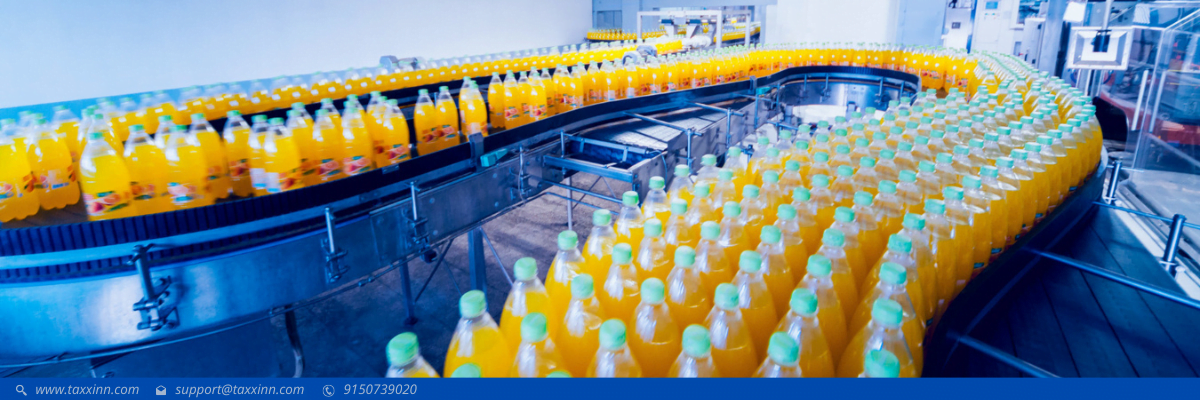India, the sixth-largest grocery and food market in the world, is an agrarian economy known for manufacturing a variety of organic food products. The food processing sector has developed into one of the most prominent in India.
Food Processing Company
The term “food processing” describes a collection of steps and techniques used to transform raw food components into something suitable for cooking, consumption and storage. It includes a variety of processes, such as the basic processing of raw food before turning it into something that can be consumed. Food processing facilities are used by plantations, horticulture, agriculture, fisheries, and animal husbandry. This sector includes other industries that use agricultural inputs to produce culinary goods. This manufacturing sector has developed into a major source of investment and revenue.
How to Start a Food Processing Company in India?
The Indian government has established several policies and programs to aid in the formation of food processing companies. An FSSAI license is required to start any food-related business. Depending on the type of business, there are various FSSAI licenses that can be obtained.
Food Processing Company Registration
The first step in starting a food processing company in India is to decide on the legal structure under which the company will be registered. Here is the list of business structures that can be registered as a food processing company in India:
- One Person Company
- Public Limited Company
- Limited Liability Partnership
- Private Limited Liability
- Sole Proprietorship Firm
- Partnership Firm
Licenses Required to Start a Food Processing Company in India
FSSAI License
Obtaining a food license from the Food Safety and Standards Authority of India (FSSAI) for the purpose of preparing, manufacturing, distributing, and transporting food items is the first and fundamental need for starting a food business in India. The Food Safety and Standards Authority of India is commonly known by the abbreviation FSSAI. To operate any type of food company, from a street seller to a large-scale enterprise, one must first obtain a license from the FSSAI. This ensures the product’s quality, purity, and safety for consumption, among other important aspects that consumers can rely on.
The FSSAI license is of 3 types:
- FSSAI Registration – For a food business that has an annual turnover of up to ₹12 lakhs
- FSSAI State License – For a food business that has an annual turnover of up to ₹20 crores and operates in only one state
- FSSAI Central License – For a food business that has an annual turnover of more than ₹20 crores and operates in multiple states
FSSAI registration can be done through either offline or online processes. The proprietor of a food business must submit an application to the licensing authority together with the necessary fees in order to acquire the license offline. However, the FSSAI Food Safety Compliance System (FoSCoS) allows you to acquire a license online which is a more simple and hassle-free method of FSSAI registration.
Shops and Establishment Registration
Owners of businesses with more than 10 employees are required to register with the state labor department. Therefore, in accordance with the Shops and Establishments Act of 1953, a food business operator is required to obtain a trade license by registering the business with the local government. You can obtain a Shop and Establishment Certificate by completing a form, paying the required fees, and attaching the necessary paperwork. Recently, the Shops and Establishments registration process was shifted online.
(*Note: Hereafter “Shops and Establishments Act” is also mentioned as the S&E act.)
Trade License/Eating House License
Under the Shops and Establishment Act of 1953, businesses like restaurants, eating houses, food trucks, small street shops, canteens, residential hotels, etc. are required to have an eating house establishment license. Food businesses are typically granted a trade license under the name of an “Eating House License” under the Municipal Corporation guidelines of the various States in India. Any person running a food business can obtain a trade license by submitting an application to the appropriate municipality. The majority of trade permits issued in most states have a one-year expiration date and must be renewed annually with the payment of yearly fees. If you intend to open many stores, each one needs a legitimate “Trade License” from the local authority.
Pollution/Environmental Clearance
Given the smoke emissions from the cooking process and the washing of food waste, the food sector is considered to be a polluting industry. Therefore, obtaining environmental clearance from the relevant State Pollution Control Board (PCB) is essential for the formation and operation of a food business.
NOC from Fire Department
Before establishing the business, an NOC is required from the local fire department. The applicant should submit an application along with the required supporting documents, such as building blueprints, a building model, and an architect’s certificate. The candidate must also complete a questionnaire about following fire safety laws and regulations. After the paperwork has been verified, the fire department representatives will inspect the property.
Labor law Registrations
Registrations under labor law are indeed very important wherever they are applicable. The S&E Act* governs working conditions in commercial enterprises such as working hours, opening and closing hours, public holidays, overtime compensation, etc., which protects employees in the food industry. The following are some significant labor laws where registration is required:
- Employees State Insurance (ESI) Registration
- Employees Provident Fund (EPF) Registration
- Contract Labour Registration
Signage License
Before establishing a food business, a license for signs is also required. Outside ads, signboards, and hoardings need permission from the local municipal authority. After acquiring a license to operate from the local administration, one standard signboard is often permitted in front of a business, connected or installed inside the business premises. The authorities will approve additional boards by receiving the required payments.
Tax Registration
One of the most important registrations for every company is tax registration. Some of the taxes that you need to know before starting a business:
1. Income Tax
Every company, including the food industry, is mandated to obtain a PAN and TAN in the name of the business or the person in the case of a sole proprietorship whose name the transactions will be conducted. Two ten-digit alphanumeric numbers, PAN and TAN, are issued by the Income Tax Department. Every person who withholds or collects taxes at the source must apply for a TAN. AADHAR can now be used to file IT returns in place of PAN, but PAN is still required for payments over Rs 50,000, according to recent revisions.
2. GST (Goods and Service Tax)
On 01 July 2017, the Indian government implemented GST (Goods and Services Tax) which resulted in the VAT and Service Tax regimes coming to an end. You need to pay tax if your revenue exceeds ₹20 lakhs (₹10 lakhs for North-Eastern states and the Special Category States), under the GST regime. Each business with a GST requirement must register and get a GSTIN (a unique Goods and Services Tax Identification Number).
3. Professional Tax
The local municipality collects a professional tax on each employee’s wage. Each state has a different tax rate. Most States give a registration certificate or enrollment number for the purpose of professional tax payment, which will be used as a reference for remitting the tax.
Infrastructure Licenses
In addition to the above-mentioned licenses, which are not exclusive to the food industry but may be necessary depending on the infrastructure that you invest in for your company. For instance, owning a diesel generator with a capacity greater than 500 KVA needs to be registered with the Electrical Inspector. A license from PESO may be required for food businesses that need to store flammable materials such as diesel, kerosene, liquid petroleum gas (LPG), boilers, etc. if the quantity exceeds the set limit.


